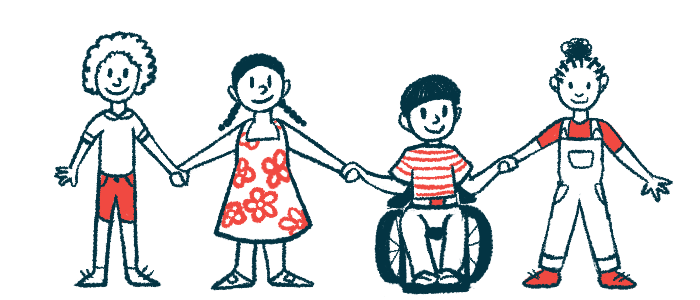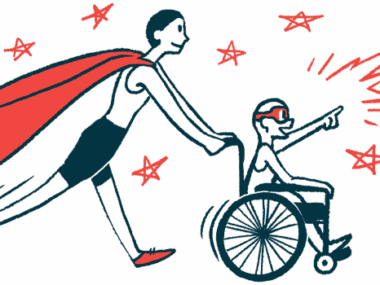Fycompa safe, effective as add-on treatment for children with Dravet
Study found benefits even for those younger than 4 when starting therapy
Written by |

Daily treatment with Fycompa (perampanel), on top of standard medications, was safe and reduced seizure frequency for children with Dravet syndrome whose seizures had not been previously controlled with other therapies, according to an observational study in China.
Fycompa’s benefits were observed in children of all ages, including those who were not yet 4 years old when starting on it — that’s younger than the age for which Fycompa currently has regulatory approval.
“Compared with other treatment options, [Fycompa] has the advantages of good therapeutic effect, no serious adverse events, and convenient administration,” researchers wrote. “Taking it orally once daily before going to bed, [Fycompa] may become a new adjunctive option to control seizures in children with [Dravet syndrome].”
The study, “Efficacy and tolerability of perampanel as add-on therapy in Dravet syndrome: A prospective real-world study,” was published in Epilepsia Open.
Fycompa designed to reduce excessive nerve cell firing that characterizes seizures
Dravet syndrome is a rare and severe form of epilepsy, characterized by various types of seizures, as well as a range of other developmental, cognitive, behavioral, and psychiatric challenges. Seizures in Dravet usually start in the first year of life and are very difficult to control, even with multiple medications.
Fycompa is a medication that’s designed to reduce the excessive nerve cell firing that is typical in seizures by blocking AMPA receptor proteins in the brain. It is approved in the U.S. and elsewhere for treating certain seizure types in people with epilepsy, and is sometimes used for Dravet.
The medication was originally developed by Eisai, which markets the therapy outside the U.S., while Catalyst Pharmaceuticals has commercialization rights in the U.S. It is available in oral tablet and liquid suspension formulations, with a generic version of the tablets recently made available in the U.S.
In China, where the study was conducted, as well as in the U.S., Fycompa is approved for treating partial-onset seizures with or without secondary generalization in people 4 years and older, and as an add-on therapy for treating generalized tonic-clonic seizures in people 12 years and older.
The researchers noted that while some recent studies have demonstrated the effectiveness of Fycompa in people with Dravet, very few have involved children younger than 4 years old.
More than half of children responded to treatment after 3 months
In the recent report, the scientists described the findings from a real-world, observational study of 21 children with Dravet who were treated with Fycompa at a hospital in China, including seven children younger than 4 years old who received the therapy off-label.
All participants had been experiencing seizures more than once a month on average prior to study enrollment despite stable treatment with one or more medications. They had been using an average of 2.57 anti-seizure medications.
Fycompa was begun at a daily dose based on participants’ age and weight. It was adjusted as needed based on individual responses.
More than half of the children (52.4%) responded to the treatment after three months, meaning they experienced at least a 50% reduction in seizure frequency, and 14.3% experienced complete seizure control. By six months, the response rate was 47.6%, and the seizure control rate was 19%.
Fycompa] showed sufficient efficacy and a satisfactory safety and tolerability profile, suggesting that it could be a new adjunctive option to control seizures in children with DS, as second or even first added [anti-seizure medication].
Response rates after six months were lower in children younger than 4 years old (28.6%) than in children 4 to 12 years old (58.3%) or older than 12 (50%), although the difference was not statistically significant. There also were no significant differences in response rates based on seizure type or genetic mutation status (genotype).
“So, the clinical efficacy of [Fycompa] therapy at 6 months was not correlated with age of adding [Fycompa], baseline treatment, and genotypes,” the researchers wrote.
Neurodevelopmental assessments suggested improvements after starting Fycompa, although the finding was not statistically significant.
The most frequently reported adverse events included irritability, fatigue, unstable walking, sleepiness, and sluggish responses, but most were mild and temporary. All side effects occurred in the first month. Two children discontinued the treatment early due to lack of efficacy, and no children stopped because of side effects.
“[Fycompa] showed sufficient efficacy and a satisfactory safety and tolerability profile, suggesting that it could be a new adjunctive option to control seizures in children with DS, as second or even first added [anti-seizure medication],” the researchers wrote. “In the future, multi-center prospective cohort studies with large samples on long-term therapy still require further study to confirm the long-term efficacy and underlying mechanism of [Fycompa] for DS.”







